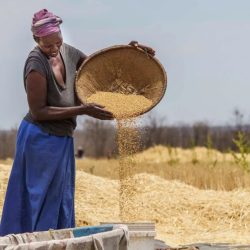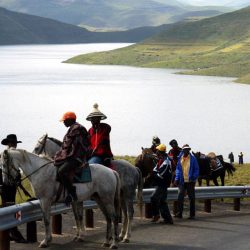Brasília, Brazil – Zambia has embarked on a high-stakes diplomatic mission to Brazil, aiming to cultivate a bumper crop of technical expertise and investment for an ambitious agricultural master plan. This initiative is strategically aligned with the development of a crucial infrastructure project, the Lobito Railway Development Corridor, which promises to link Zambia to Angola’s Atlantic coast via the Democratic Republic of Congo.
Leading the charge are Zambia’s seasoned Finance and National Planning Minister Situmbeko Musokotwane and Agriculture Minister Mtolo Phiri. The duo is banking on Brazil’s globally renowned agricultural prowess to invigorate productivity along the corridor, with a keen eye on agriculture, agro-processing, and value chain development.
Speaking to Zambian broadcasters, Minister Musokotwane underscored the mission’s core objective: a robust exchange of knowledge with Brazilian counterparts to significantly scale up economic productivity through agriculture. The urgency of this endeavour is further highlighted by President Hakainde Hichilema’s direct directive for the delegation to prioritise immersive field visits to Brazilian farms and agro-industrial ventures. Beyond the fields, the Zambian team will engage with key stakeholders to dissect Brazil’s successful investment models and institutional frameworks that have propelled its agricultural sector to global prominence.
The Lobito Corridor is not merely a railway line; it’s envisioned as a transformative infrastructure initiative poised to catalyse Zambia’s agriculture-led industrialisation and ignite regional trade expansion. This monumental undertaking is bolstered by a trilateral partnership between Angola, the DRC, and Zambia, enjoying robust backing from international heavyweights such as the World Bank, African Development Bank, and Africa Finance Corporation.
Zambia and Brazil share a history of cordial bilateral relations, particularly in the spheres of agriculture and technical cooperation. The striking parallels in their tropical climates and savanna terrains make Brazil an invaluable partner, offering a comparable context that could be instrumental in shaping a sustainable and scalable agricultural blueprint for the burgeoning Lobito Corridor. This mission isn’t just about diplomacy; it’s about planting the seeds for a prosperous future for Zambia and the wider region.




